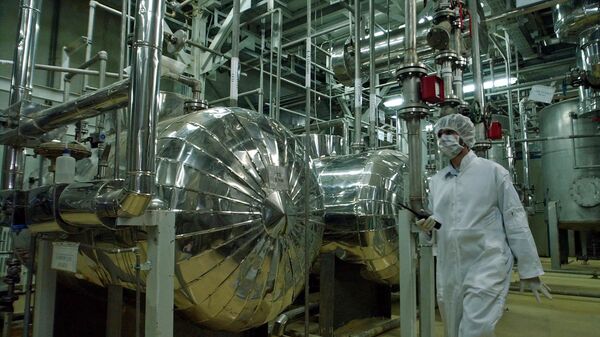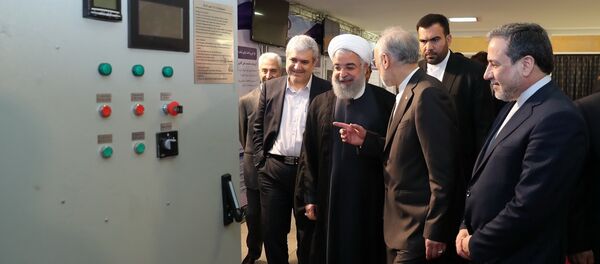The International Atomic Energy Agency (IAEA) has said in its report, distributed to member-states, that Iran has continued its policy to increase its low-enriched uranium stockpiles, having accumulated some 2.32 tonnes by 25 August. This is a major increase compared with the last report from 20 May, which showed that the Islamic Republic had accumulated some 1.73 tonnes of nuclear fuel. The current level is also more than 10 times over the limit set in 2015 under the Joint Comprehensive Plan of Action (JCPOA), also known as the Iran nuclear deal.
The increase in the uranium stockpile over the last quarter roughly equals the earlier growth rate in 2020, suggesting that neither the coronavirus pandemic, nor the recent explosions in the country, some of which occurred at a nuclear site, have affected the enrichment processes.
End to Undisclosed Nuclear Sites Concerns?
The IAEA report also hinted that concerns had been allayed over two plants that had been suspected of being nuclear sites for some time. Iran previously denied to grant the agency access to these sites, but recently changed its mind, the report indicates.
Officials of the nuclear watchdog visited one of the sites and gathered nearby environmental samples to determine whether it had been used to work on nuclear materials. IAEA representatives will visit the second site in September, with the date having already been settled with Tehran. The report did not elaborate on the results of the tests on the samples from the first site.
Iran has been stockpiling uranium fuel since summer 2019, when Tehran announced it would no longer adhere to the provisions of the nuclear deal in terms of limits on stockpiles and the allowed enrichment levels. The Islamic Republic argued that it could not adhere to the JCPOA provisions while not receiving the main benefit – the ability to freely trade with the rest of the world with sanctions lifted.
Following the US withdrawal from the accord in May 2018, Iran’s oil trade was crippled and its banks were mostly cut off the international SWIFT system due to the American sanctions. The EU tried to prevent an exodus of businesses from Iran by introducing the INSTEX trade vehicle, but it failed to fix the situation in the most crucial sphere for Tehran –the oil trade.




